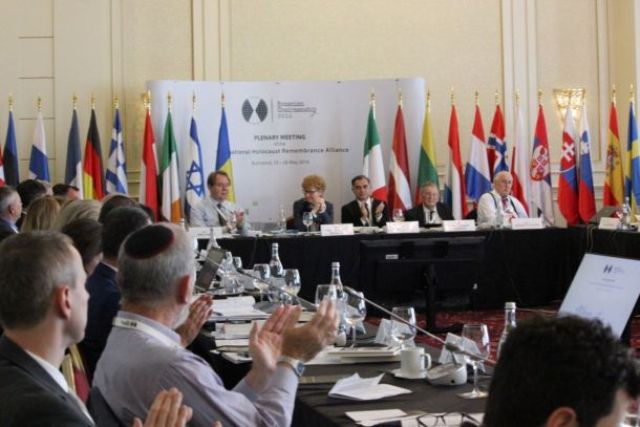The International Holocaust Remembrance Alliance – an intergovernmental group comprised of 31 nations – adopted a wider definition of anti-Semitism that includes anti-Zionism as well.
Thirty one countries voted to adopt a new working definition of anti-Semitism that includes anti-Zionism last week, a move hailed by human rights activists as an important milestone in countering hatred.
The International Holocaust Remembrance Alliance – an intergovernmental group comprised of 31 nations – adopted a definition based on the 2005 European Monitoring Centre (EUMC) Working Definition, which describes anti-Semitism as “a certain perception of Jews, which may be expressed as hatred toward Jews” that can also target the State of Israel.
The definition clearly notes that “criticism of Israel similar to that leveled against any other country cannot be regarded as anti-Semitic.” But accusations of dual loyalty and the use of double standards against the Jewish state, as well as tenets of anti-Zionism like the denial of Jewish rights to self-determination, are also considered manifestations of anti-Semitism.
“By adopting this working definition, the IHRA is setting an example of responsible conduct for other international fora and hopes to inspire them also to take action on a legally binding working definition,” said chairman Mihnea Constantinescu of Romania, noting shared concerns about the rising number of anti-Semitic incidents within member states.
“We now have a respected international organization that understands the intersection of anti-Semitism with anti-Zionism,” Ben Cohen, senior editor of The Tower, said. Cohen, the author of Some of My Best Friends: A Journey Through Twenty-First Century Antisemitism, added that “many organizations that could benefit from using this definition, not least the United Nations itself.”
Kenneth Marcus, the founder and president of the Louis D. Brandeis Center for Human Rights Under Law, similarly emphasized the significance of the IHRA’s “excellent” definition.
“It is important that it so closely mirrors both the US State Department definition and also the EUMC’s definition,” Marcus said. “In this field, uniformity is key, because it facilitates international cooperation and comparison of data across countries.”
“Such adoptions are influential, even when they are symbolic, because they change the way we talk and think about hate and bias — how people think about the relationship between anti-Israelism and anti-Semitism,” he added. “This is a multi-state process that can eventually lead to policy, enforcement and action, but it will take some time.”
By: TheTower.org
Do You Love Israel? Make a Donation - Show Your Support!
Donate to vital charities that help protect Israeli citizens and inspire millions around the world to support Israel too!
Now more than ever, Israel needs your help to fight and win the war -- including on the battlefield of public opinion.
Antisemitism, anti-Israel bias and boycotts are out of control. Israel's enemies are inciting terror and violence against innocent Israelis and Jews around the world. Help us fight back!
See our Privacy Policy